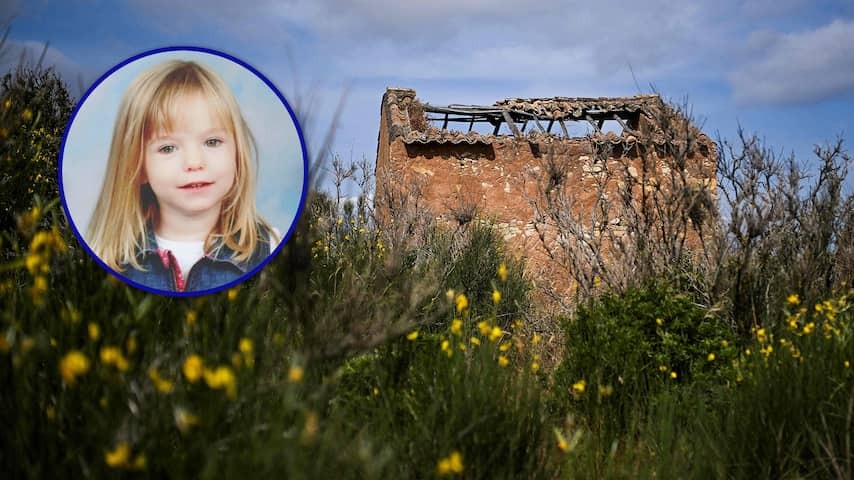
The German and Portuguese authorities have resumed searching this week for Madeleine McCann, who has been missing for eighteen years. But how much sense does that make after such a long time?
Experts tell NU.nl that it is definitely still useful, but depends on the circumstances. One thing is clear: the longer the time passes, the more difficult it becomes. Even if a missing person has died.
That has to do with the environment. “If little changes, that offers much more chance, because you are then searching in the original situation,” says criminologist Jasper van der Kemp. “If we assume a situation in which a body is buried, you are also dependent on the police in a country, the changes, the type of soil and whether wild animals can dig something up, for example.”
Pathologist Frank van de Goot says that adult remains can still be traced for a long time. He refers to archaeological finds of human remains that are sometimes four hundred years old.
That is more difficult with children. “If Maddie is buried in Portugal, she is in dry ground. You can still recognize large bones. And if you find something of dental elements, you can still extract a DNA profile from it.” But that is more complicated with acidic soil, such as peat soil in Drenthe. Acid dissolves bone remains, so that little of a body remains in the long term, Van de Goot explains.
The vast majority of the long-term missing are never found again, says the pathologist. “And sometimes you have coincidence. For example, bone remains are found when trees are felled. Or people get sick and suddenly start talking on their deathbed.”
Uncertainty about new clues McCann
Whether the new search for McCann in Portugal will yield anything is the question. The German and Portuguese authorities searched an abandoned building in Lagos on Wednesday and carried out soil research. That abandoned building is a few kilometers from the resort where McCann disappeared in 2007.
The building is being investigated at the request of the German police. They hope to find evidence that a convicted German sex offender can link to the case. He lived in the building during McCann’s disappearance. The man himself denies any involvement.
Whether the authorities have a specific indication to search in the abandoned building has not been announced. Van de Goot thinks so: “There must be information behind it that is not shared with us.”
For example, a tip may have come up. But you never know in advance how valuable such a tip is, says cold case investigator Carina van Leeuwen. “All ‘tips’ from clairvoyants have never brought anyone back in any case. So I can only hope that this action is based on hard facts and indications.”
‘Mediagenic’ cases more investigated
According to experts, it is certain that the search for McCann would most likely not have lasted as long if the case had not received so much media attention. “You see that in general with many missing persons cases,” says criminologist Van der Kemp. “The ‘mediagenic’ cases, especially those involving young children or young women, often receive more attention and are investigated more.”
Van de Goot and Van Leeuwen join in. Detective Van Leeuwen would prefer to give all disappearances continuous attention, but also sees that this is not the case. “Whether it comes to Maddie because this case received a lot of (media) attention from the start or because the parents keep the attention alive, I don’t know. But continuing to ask for attention can work. Although you have to be able to do that as a survivor.”
At the same time, the other extreme is that no search is carried out at all, says pathologist Van de Goot. “Then we won’t find anything anyway. And then I’d rather have some missing people searched for, under whatever conditions, than not searched for at all.”